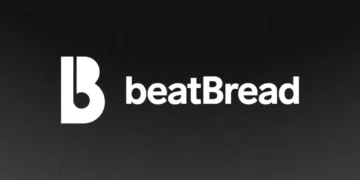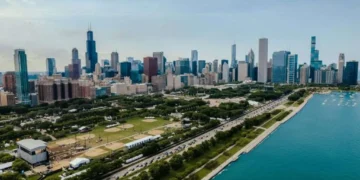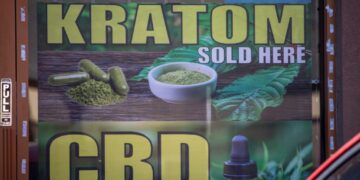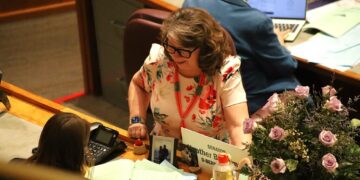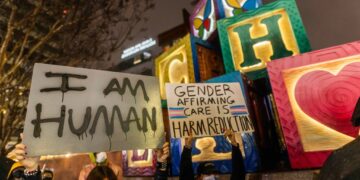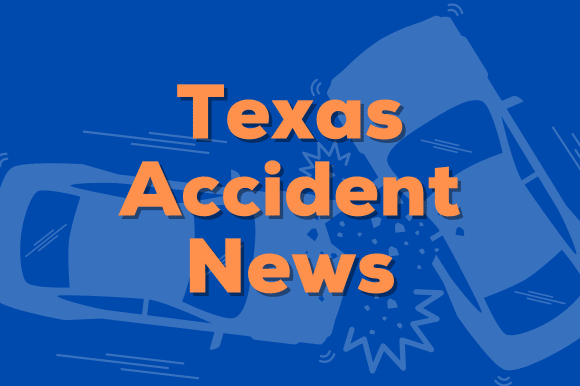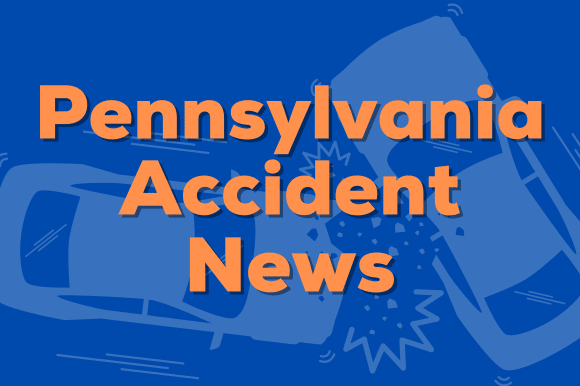
Kamala Harris’ penchant for strings of abstruse verbiage — popularly known as word salads — was one of several reasons her presidential campaign failed last year.
Her tendency was on display again last week when she announced she would not run for California governor after making other candidates, political media and voters wait for months for her decision. Harris bowed out of the 2026 race in a written statement, saying, “I look forward to getting back out and listening to the American people, helping elect Democrats across the nation who will fight fearlessly, and sharing more details in the months ahead about my own plans.
“As we look ahead, we must be willing to pursue change through new methods and fresh thinking — committed to our same values and principles, but not bound by the same playbook,” she added.
A day later, Harris continued her parade of vague statements during a softball interview with late night talk show host Steven Colbert, declaring that the American system of government was broken. Pressed mildly to explain, Harris responded, “Well, but it’s also evident, isn’t it? But it doesn’t mean we give up.”
Whatever persuaded Harris not to seek the governorship, her announcement finally allows those who want the job to shift into a higher gear. Had she run, several of the hopefuls would probably have dropped out.
With her out of the picture, the field remains crowded without a clear frontrunner.
“None of these candidates start out with statewide name recognition,” Garry South, a veteran Democratic strategist, told the Los Angeles Times.
That said, there does appear to be two fairly distinct levels of candidacy: Democrats with genuine shots at winning versus those who face an uphill struggle to be taken seriously.
At the moment, the higher tier includes Katie Porter, a former Orange County congresswoman who fell short in a U.S. Senate bid last year; Lt. Gov. Eleni Kounalakis, who has substantial private wealth and is backed by former House Speaker Nancy Pelosi; and Antonio Villaraigosa, the former mayor of Los Angeles.
The lower tier includes Xavier Becerra, a former state attorney general and Biden cabinet member; Toni Atkins, the former president pro tem of the state Senate; state schools Superintendent Tony Thurmond and former state Controller Betty Yee.
What about Republicans?
Riverside Sheriff Chad Bianco and former Fox News host Steve Hilton are running, but the chances of a GOP win next year are infinitesimal. However, were the Democratic field to remain large, fragmenting the Democratic vote, a Republican could finish second in the primary and win a spot on the general election ballot, essentially guaranteeing the Democratic nominee an easy win.
That’s what happened last year when Democrat Adam Schiff indirectly helped Republican Steve Garvey place second in the U.S. Senate primary, thereby foregoing a general election duel with Porter.
When a clear Democratic frontrunner emerges in next year’s campaign for governor, the other Democrats will be competing for second place in the primary and a spot on the November ballot.
Meanwhile, another potential candidate could change the post-Harris dynamics: Los Angeles businessman Rick Caruso, a Republican-turned-Democrat who lost the mayor’s race in 2022 and is reportedly weighing either another mayoralty bid next year, challenging incumbent Karen Bass, or a shot at the governorship.
Caruso is very wealthy and could draw heavy support from California’s business community, particularly if he were to survive the primary and face a liberal Democrat such as Porter.
We waited for months to learn whether Harris would run. Now we’re waiting for Caruso.
This post was originally authored and published by Dan Walters from Cal Matters via RSS Feed. Join today to get your news feed on Nationwide Report®.


